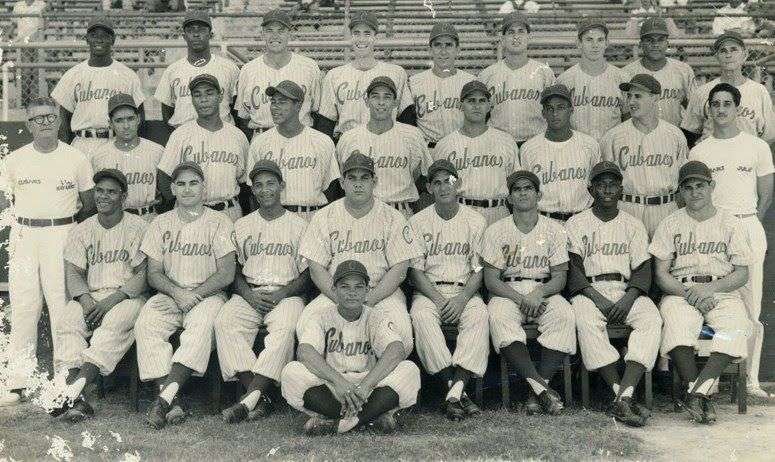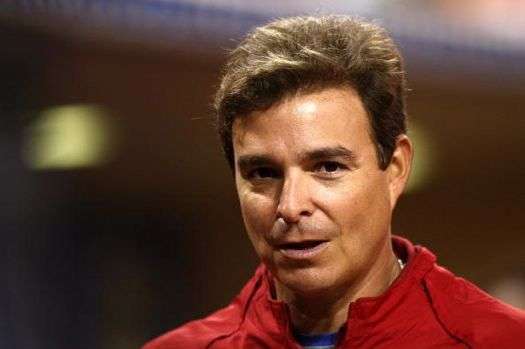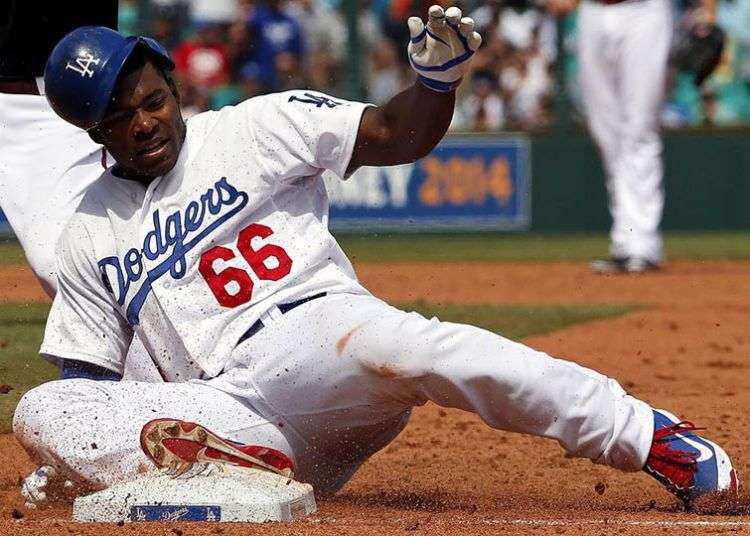The Major League Baseball (MLB) and Cuba are divorced. None of them assume the other one. But both, sooner or later, will end up in a sublime dependency, full of actors and conflicts, to the point of interweaving, unaware, an apocryphal correspondence.
Today, Cuban players raise their eyes to look at the MLB seeking a change. That scenario is where they can put a bound according to their talent and become valued by an economic amount adjusted to commercial logics that rule the sports universe.
The jump from the Cuban National Series to the Big Show does not scare. Cubans who play baseball and believe they have enough capabilities to try their luck do not think it twice ; there are even those who , even knowing t heir lack of level for that elite competition, do not hesitate in taking that step .
For a couple of decades ago , with a significant increase in recent years , an eloquent Diaspora of Cuban baseball has emerged, both in the United States, as in some Caribbean nations. Somehow, these athletes have found their legitimization in figures like Yasiel Puig, José Dariel Abreu and Aroldis Chapman, with their multimillion dollar contracts and their sublime performances on the circuit; have opened a lock that was ajar.

Issues of a conflict
The Cuban baseball, by its quality and geographical proximity, always had a strong presence in MLB. But there was a shift with the triumph of the Cuban revolutionary government of 1959, a distancing in relationships. The State Department banned American players to play Cuban professional season, presumably to preserve their physical integrity.
The decision came by a particular incident. The Rochester Red Wings and the Havana Sugar Kings were playing at the famed Grand Stadium of Cerro on the night of July 25, 1959. The game did not end its nine innings, because various disturbances occurred during the match. Cuba was celebrating for the first time the date of July 26 and during that festive maelstrom there were those who could not contain their apotheosis.
Several shots were fired to the air; a thick gray cloud of volatile gunpowder emerged and left defenceless a couple of players who were pray of the revolutionary lawlessness.
“Frank Verdi, third base coach of Rochester and Leo Cardenas, Havana shortstop, suffered superficial wounds during the unfortunate incident, causing Cot Deal, Red Wings head coach, to take out his team and they headed to their hotel in the center of city. Officials of the International League would cancel the home club matches of the Sugar Kings, and eventually relocated the franchise in Jersey City during the middle of the season of 1960, “Mark Ruckner and Peter C. Bjarkman told in their book Smoke: The Romance and Lore of Cuban Baseball.
Some argue that the measure was influenced by pressure from the administration of President Dwight D. Eisenhower and that, in a way, was one of the root causes that led to the eradication of professional baseball in Cuba.
In this sense, Félix Julio Alfonso, Cuban historian and anthropologist, in his book ¨Con las bases llenas¨ (With the bases loaded) reveals statements by Fidel Castro in 1959: “Cubans do not want the Cuban Sugar Kings to leave Cuba, we want to make a major league team. (…) We are determined to show that we have good baseball players. ”
After the storm cloud, everything was encrypted on time. The omen of the solution disappeared and the pressures on both sides were intensified. Cuba banished professionalism from its lands and the United States raised an embargo law to the island that since then makes impossible for Cubans to be part of the greatest baseball showcase lawfully. Images like Orestes Minoso playing in left field for the Chicago White Sox in the summer and the Marianao Tigers in the winter would remain on the retina.
As a result of this regulation, for a Cuban baseball player to get enlisted in one of the MLB rosters, he must meet several inviolable requirements imposed by the Cuban Assets Control Regulations (CACR) which states: “none United States baseball organization is allowed to engage in any transactions with Cuba, unless asking for a specific license.” 1
This regulation forces Cuban players and MLB franchises to step over the legal varnish and find mechanisms running in the shadow of human trafficking that allow them to access to sign formal agreements. The players leave Cuba, by any means, to settle in a third country that can provide them residence and thus the status of “free agents”.
A needed dialogue
” I know that there are obstacles beyond sport for playing in the majors, but it should happen,” Felix Julio Alfonso said, in an interview with the Trabajadores newspaper, referring to the inclusion of Cuba in MLB.
This is a situation that has been strained to the utmost, both by long-lived legacy regulations by the Office of Foreign Assets Control (OFAC), belonging to the Department of the Treasury of the United States, and the static position taken by Cuba in this regard throughout history.

A few months ago the way was lit, perhaps the starting point for a possible dialogue. It started with the voice of Tony Castro, who was serving at that time as Vice President of the International Baseball Amateur Federation (IBAF) and in statements to ESPN Magazine said: “We have to talk about it. Cuba has to give in and take the first step, but the MLB has to do the same. We need to sit together and talk openly to find a realistic solution to the problem. ”
Tony Castro also referred to the emotional matter that fans can experience when players leave never to return: “Fans do not have to keep losing their players and then not be able to re-integrate with the Cuban national team. Our players, who trained here, earned the right to go and play in other leagues and face a higher level; they must be able to do so without fear and return to play for their country. ”
But apparently the invitation to the negotiating table did not get to the Major League Baseball offices and they ignored the issue; more or less the same course with which Castro’s words were assumed in Cuba: total silence.
At present, although the steps taken by Cuba with the provisions on the recruitment of athletes overseas invite to dream, the situation has regressed some steps. Tony Castro is no longer in his post and it is notable the absence of actors, leading voices able to pull strings and promote this debate.
Eyes set ahead, lost gaze
“The Cuban baseball authorities are facing the most difficult situation. They want to reward better their players with higher salaries and the opportunity to earn money abroad, but not at the expense of dealing with MLB, since sending players to the United States would mean they not return to Cuba to play the winter league and would also be lost for the national team, “Peter C. Bjarkman, American intellectual who has studied Cuban baseball, tell us.
From this judgment and the experience accumulated for years, it follows that there is not an ideal scenario for a possible deal to be achieved.
“Changes in the policy of the Cuban National Institute of Sports Physical Education and Recreation (INDER by its Spanish acronym) in 2013 have not stopped, and will neither do it, the surge; Cuban officials can do little about it, but I doubt it’s enough to reverse the current players stealing” Bjarkman says.
There are very different interests in the assumed positions, although many agree that all Cuban players should be legally allowed to sign with any MLB franchise, but from there on, everyone follows their own path.
The prospect of Cuba would be that its players to attend the Big Show and prove their level, receiving financial remuneration for it, and that return in the winter to participate in Cuban National Series. That is almost an idyll that will never be fulfilled as long as the existing provisions of Treasury Department of the United States to last. Meanwhile, none of the 30 MLB teams would allow their players at the end of the regular schedule of 162 games, plus playoffs, traveling to Cuba to play nearly 90 matches in their domestic tournament.
No solution is in sight. Cuba could open to the logics globally set for professional sport where players are hired by foreign clubs but they are obliged (unless in case of some specific discrepancy between federation and athletes) to attend to the call of the national team.
This does not require the resignation to the nation. It is a way of assuming the profession and reward the talent with economic benefits. Or isn’t that the same that Cuban musicians, dancers, actors do? If the step is not taken, we will reach bled to death the World Baseball Classic in 2017, with many players just watching it from the stands or by satellite.











